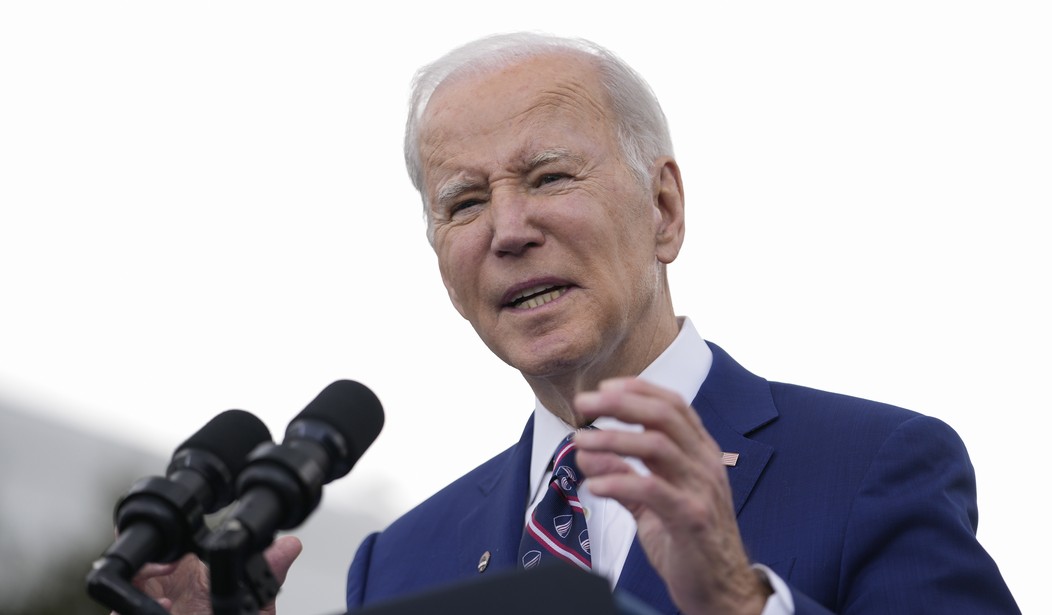Last week, President Biden announced the creation of two new national monuments.
The decision isn’t random. Biden wants to win back environmentalists he angered after approving the Alaska Willow Project.
The Avi Kwa Ame National Monument consists of over 500,000 federal land acres in Clark County, Nevada, while the proposed Castner Range National Monument near El Paso, Texas, will sit on roughly 7,000 public land acres. The order also directs Commerce Secretary Gina Raimondo “to consider initiating a new National Marine Sanctuary designation” protecting all U.S. waters around Pacific Remote Islands within 30 days of the announcement.
Why monuments and why now? The White House claims the sites will bolster the administration’s 30-by-30 initiative to “conserve” 30 percent of waters and 30 percent of lands by 2030. The plan purportedly touts conservation yet fails to define it and insists on a whole-of-government approach to environmental stewardship. The ultimate goal is to rewild the entire U.S., which is infeasible and not conservationist.
National monuments permanently protect “antiquities”—namely objects, memorials, or sites for cultural, historic or scientific purposes—on public lands. Presidents have the authority to create, expand, diminish, or abolish them under the Antiquities Act of 1906. But the scope of presidential powers is rightly being challenged.
Section 2 of the law states presidents can create national monuments “confined to the smallest area compatible with proper care and management of the objects to be protected.”
Recommended
But President Biden, like Bill Clinton and Barack Obama before him, didn’t adhere to this stipulation.
Although the law is understood to not allow diminishment, the left-leaning Brookings Institution argues it can be implied. It also said President Trump had the authority to diminish Bears Ears National Monument in southeastern Utah. Interestingly enough, Trump wasn’t the first president to shrink monuments. Presidents Eisenhower, Truman, Taft, Wilson, and Coolidge also engaged in “diminishment” but never had their actions challenged by courts.
Can the president have carte blanche designating millions of acres as “smallest area compatible”? Since Congress has constitutional primacy here, the ball falls in their court to clarify “diminishment” powers and define “smallest area compatible.”
There is precedent to restrict presidential powers here. Congress has previously limited monument declarations in two states: Alaska and Wyoming. Does the legislative body have the appetite to reform the law more?
There have been previous attempts, though unsuccessful, to modernize the law and rein in abuses. And going off of recent conversations I’ve had with some members of Congress, we may see action to limit the Antiquities Act during the 118th Congress.
In 2017, two bills were introduced - the Improved National Monument Designation Process Act and the National Monument Designation Transparency and Accountability Act - to offer more transparency.
The former would have required three criteria to be met before a national monument declaration proceeds: Congressional approval, approval by impacted state legislatures, and proof of certification of compliance with the National Environmental Policy Act (NEPA). The latter would have amended Title 54 of the U.S. Code, to get approval from Congress and states before declarations are made.
If Congress fails to limit President Biden’s powers, the Supreme Court may intervene. In 2021, Chief Justice John Roberts warned a challenge to the Antiquities Act “may warrant consideration—especially given the myriad restrictions on public use this purely discretionary designation can serve to justify.”
Like their preservationist brethren, monument absolutists don’t see the paradox of unilateral designations: they often restrict public lands access to outdoor recreationists and invite undemocratic behavior that limits input from key conservation stakeholders.
Congressional Sportsmen’s Foundation warned national monuments aren’t “mandated to adhere to science-based wildlife management practices” and “can pose significant challenges to continued and reasonable access for sportsmen and women.”
The group added, “Without clear direction in the designating proclamation or legislation, historical access by sportsmen and women can be unnecessarily restricted.”
Three conservation leaders, including CSF’s president, wrote in 2017: “...monument designations have also negatively impacted recreational access and state wildlife agencies’ ability to effectively manage fish and wildlife species and their habitats.”
Leaders representing the National Wild Turkey Federation, Boone and Crockett Club, and Wild Sheep Foundation also stressed designations must be “locally driven, transparent, incorporate science-based management, conserve important fish and wildlife habitat and uphold hunting and fishing opportunities.” By excluding stakeholders, they warned, support for public lands could wane and, thus, undermine true conservation efforts.
Shawn Regan, vice president of research at the Property and Environment Research Center (PERC) and former National Park Service ranger, observed the Antiquities Act, as currently understood, “runs roughshod over the legislative process that is at the core of American governance, which seeks to promote compromise and coalition-building.”
Regan further noted past actions by Obama—similar to current actions being pursued by Biden today—undermined the democratic process by giving preservationist environmental groups undue influence to bypass debate and directly petition the White House.
Since entering office in January 2021, President Biden has abused his authority concerning the Antiquities Act of 1906. As a result, national monument enlargements and new declarations have rubbed many Westerners the wrong way.
After re-enlarging Bears Ears to 1.4 million acres, the Utah delegation is suing the White House over an “unlawful designation.” Despite lauding Tribal input for critical politics, the White House ignored the Ute Indian Tribe’s concerns regarding a new Colorado national monument announced last fall. And Governor Joe Lombardo (R-NV) expressed frustration with the White House for not consulting him ahead of announcing the new Nevada monument.
The Antiquities Act is overdue for some modernization. Therefore, Congress must exert itself here to preserve true conservation.
























Join the conversation as a VIP Member